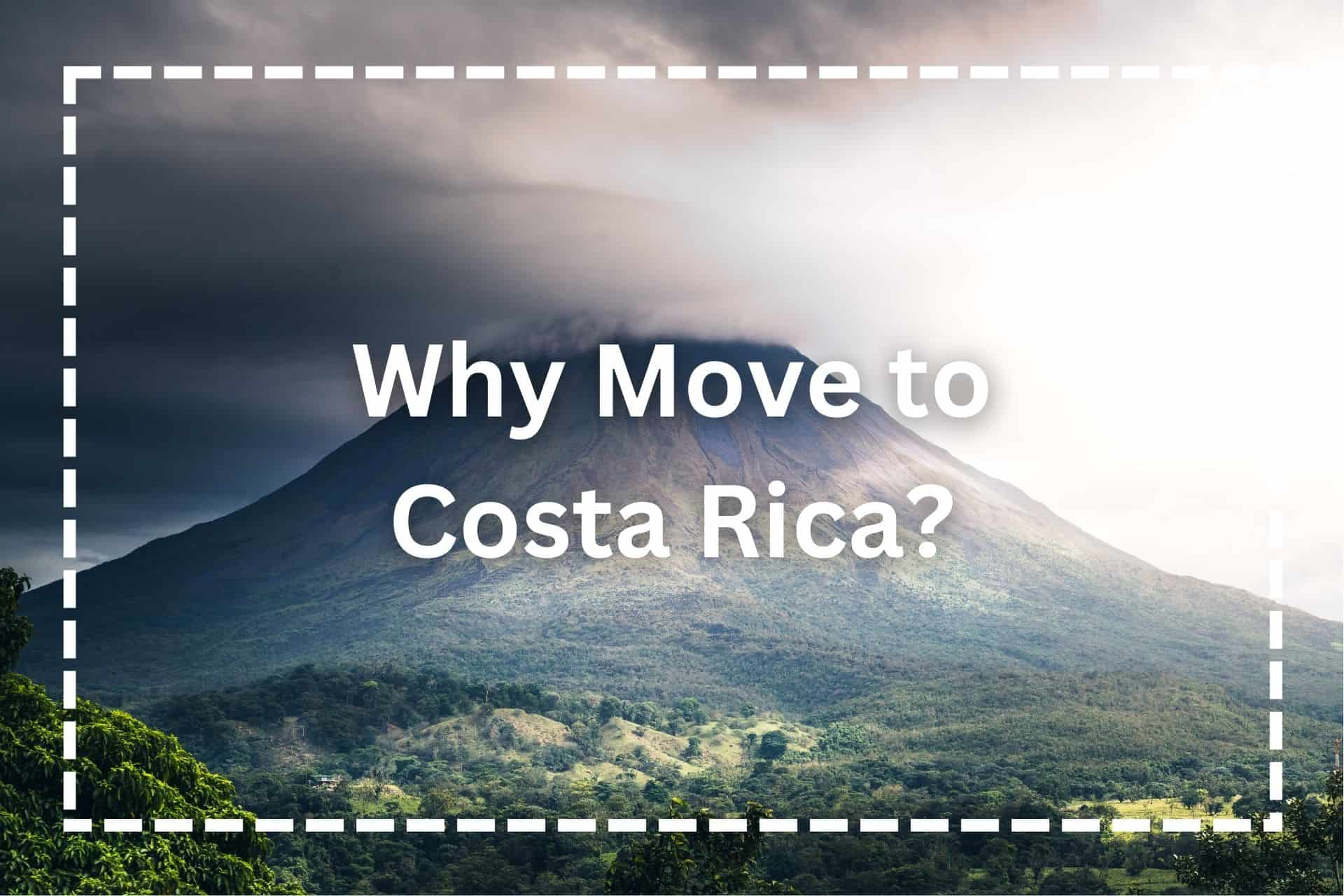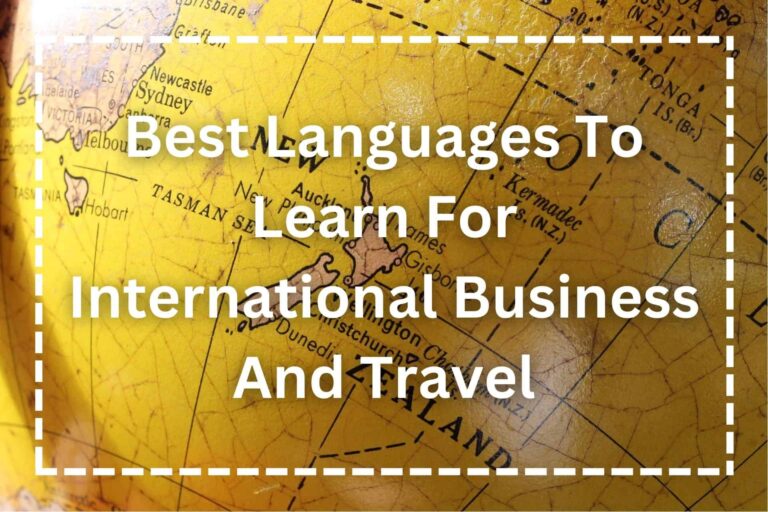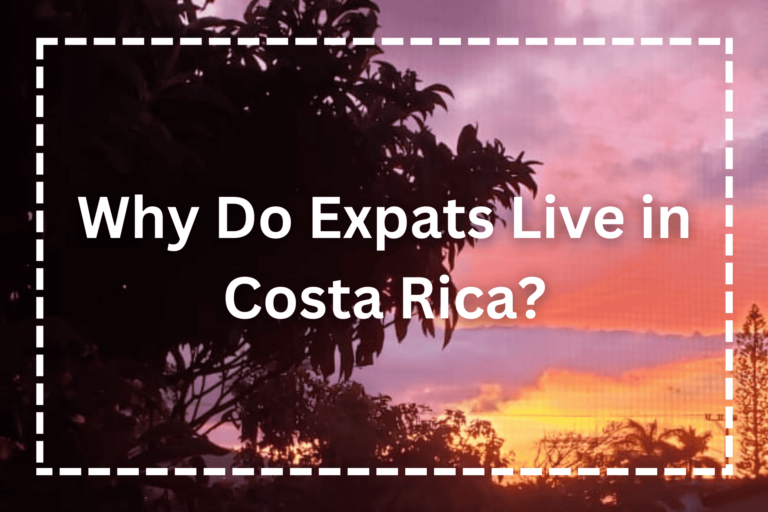Why Move to Costa Rica in 2024?
Do you want to move to Costa Rica?
It’s as simple as hopping on an airplane, flying south, and leveraging the lower cost of living to your benefit. If you’re thinking about finding another place to live, Costa Rica may quickly make it to the top of your list.
If you decide to live in Costa Rica, check out this moving checklist* for helpful tips and advice.
Did I want to move to Costa Rica? God, yes, I certainly did.
And then the doubts crept in: “Oh, my God. What was I thinking? Am I really about to move to Costa Rica for a year? This was a mistake. This was a huge, colossal, major mistake. I’m going to die.”
Those were all the thoughts that ran through my head as I waited for my plane to take off early one afternoon at the tail-end of November, 2023. But then again, as I thought about beaches, rainforests, Costa Rica’s cost of living versus the United States, and really cute expats who came down to surf, moving to San Jose to work could be a good thing.
“This could be a big mistake,” I muttered to myself as the plane’s engines fired up and we started taxiing down the runway. “Ooooorrr, this could be the best decision you’ve ever made.”
Was it a mistake? I’m still figuring that one out, but here are a few things I learned right off the bat about Costa Rica.
Why move to Costa Rica?
People move to Costa Rica for all sorts of reasons. Here are some of the major ones:
- You don’t need a visa to enter Costa Rica.
- Cost of living is comparatively low.
- Large expat community.
- Healthcare is high-quality and affordable.
- Housing is inexpensive.
- Costa Rica is considered the safest country in Central America.
- Beautiful environment and enormous amount of biodiversity.
- You can work without a work visa.
- The food and coffee are to-die-for. Plus, Coca Cola with real sugar.
With that TL;DR out of the way, let’s dive in.
You don’t need a Special visa to enter Costa Rica.
Anybody entering Costa Rica enters as a tourist, and your visa is simply what you get when they stamp your passport in immigration.
Even better? They recently extended the duration of a tourist visa from 90 days to 180 days.
That’s six whole months of sun, surf, sand, and good food before you have to exit the country. Yes!
After that, you simply have to exit and then re-enter Costa Rica to renew your visa for another 180 days.
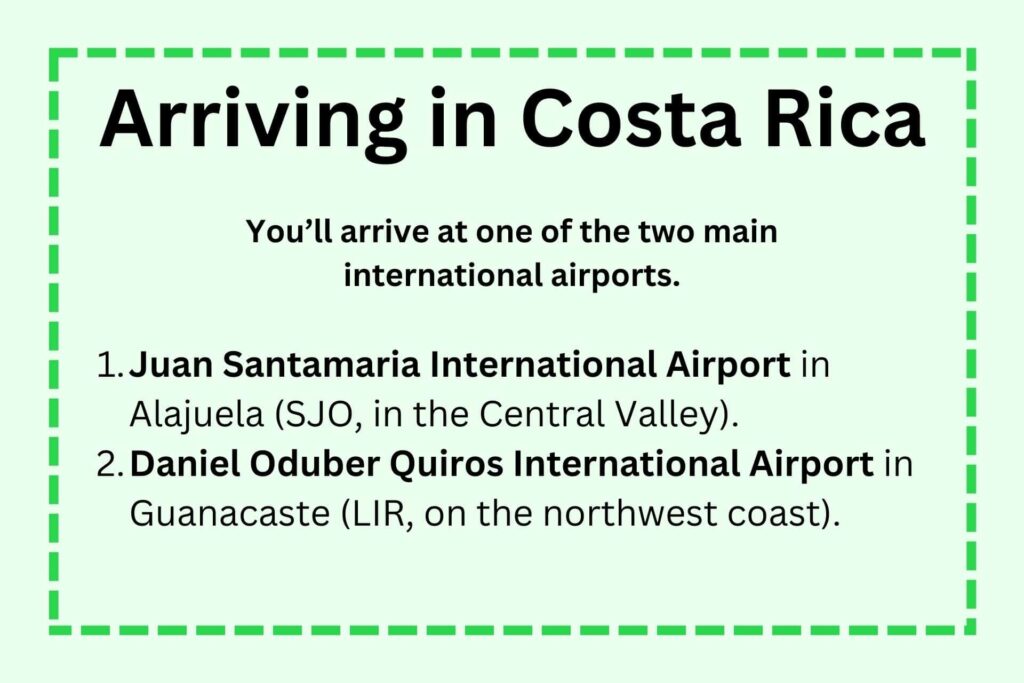
As long as you have a valid passport from the United States, United Kingdom, or the European Union, you don’t have to have any special visa to enter the country.
Costa Rica’s immigration center DOES, however, require that you have a paid-for ticket showing your date of departure before they’ll even let you into the country.
Somehow, I didn’t know that before I arrived, and subsequently almost got denied entry into the country. My phone’s US SIM card stopped working as soon as I crossed south of the border.
Thankfully, I was able to pick up a wi-fi signal in the immigration center and call the recruiter for the job I was about to take, and she was able to help me secure a bus ticket to Panama for 6 months down the line.
I showed the ticket on my phone to the guy in the immigration line, got my first official stamp in my passport, and on I went into the country.
The cost of living in Costa Rica is comparatively very low.
Compared to the United States, Costa Rica is ridiculously affordable to live in. This goes double if you have a remote job where you still earn money in your home country’s currency.
The average hourly wage in Costa Rica works out to about $8.00 per hour. You can live well here even if you’re making $12.50 per hour working 16 hours per week, or $10,400.00 per year.
If you bring down a job that pays you $50,000 per year and don’t try to live like a billionaire, then you’ll be living a very, very comfortable life, indeed.
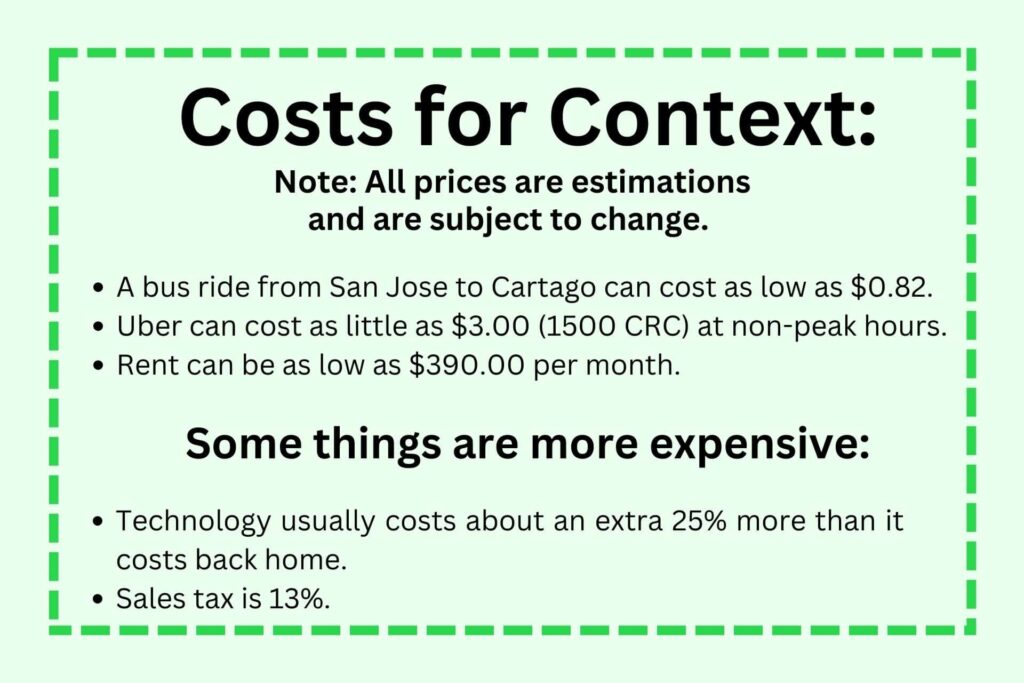
Even though Costa Rica is the richest and most expensive country to live in in Latin America, it’s still considerably more affordable to live here than it is in the US, UK, the EU, Canada, or Australia.
With this affordable cost of living, many expats join Costa Rica’s population on just their monthly pension or a part-time job, but if you’re looking for work in Costa Rica, you’ll find steep competition for unskilled labor. Best to have a degree and skills that are in demand, if you want to find work here.
Costa Rica has a large expat community.
If you like Americans and the beach town lifestyle, head over to Guanacaste or Puntarenas on the west coast. Manuel Antonio and Quepos are popular with vacationers and foreigners alike.
If you like Europeans and a more Caribbean lifestyle, head to Limón on the east coast.
In the Central Valley, you can find a number of expats in San Jose, Grecia, Atenas, Nuevo Arenal, and more.
To a lot- a LOT- of expats, Costa Rica is home. Life in Costa Rica as an expat is generally comfortable, relaxing, and a very, VERY nice change of pace from the hectic, never-stop-hustling lifestyle we’ve grown accustomed to in the United States. There are a lot of us, here.
This means that there will almost always be people you can hear speaking English in the local supermarkets or parks, especially in expat-heavy areas.
While Spanish is still the primary language of this country (and the only language of many of the people who live here), many Costa Ricans already speak English, and a growing number of Ticos are starting to learning English. If you have any Spanish skills (or know any good online translation dictionaries), they will warm up to you almost instantly, love you to pieces, and chatter happily with you for however long you let them.
And no matter where you go, you’re bound to find at least a few English-speakers who have decided to make Costa Rica their home.
Healthcare in Costa Rica is high-quality and highly affordable.
As soon as you step foot in the country, you get enrolled in the Caja Costarricense de Seguro Social (CCSS), also colloquially known just as the “Caja” (pronounced KA-ha). This is the country’s socialized healthcare system.
For all that I could gripe about the long wait times just to get in to see a doctor (upward of 2 months for just a checkup!), I have to say, it does make things much more affordable in terms of monetary costs.
Thankfully, I haven’t needed to see a doctor, yet, since I’ve been down here. According to friends I’ve spoken to, the doctors here are top-notch: a lot of them speak English and trained in the United States or Canada before they returned to Costa Rica, so you get excellent treatment no matter the price.
If you’re willing to be patient and wait months on end for a basic doctor’s appointment, then you won’t pay a cent out of pocket. It’s all paid for from the earnings taxes and sales taxes imposed on the country’s hardworking citizenry. More complicated or specialized appointments and treatments can cost more (and you’ll have to pay for it out of pocket), but it’s still much cheaper than the thousands or hundreds of thousands of dollars you would pay for the same treatments in the US.
If you have private insurance in Costa Rica, then you can get in to see a doctor even faster, and it’s still dirt-cheap while maintaining the same excellent quality you would pay through the nose for back home.
Housing in Costa Rica is inexpensive.
This depends heavily on what your lifestyle is like, what kind of housing you’re seeking, and where you buy, but regardless of the circumstances, most housing is much more affordable than equivalent housing would be in most parts of the United States.
I found short-term lodging in a housing complex meant for university students and young professionals, and it was comfortable and in a safe part of town.
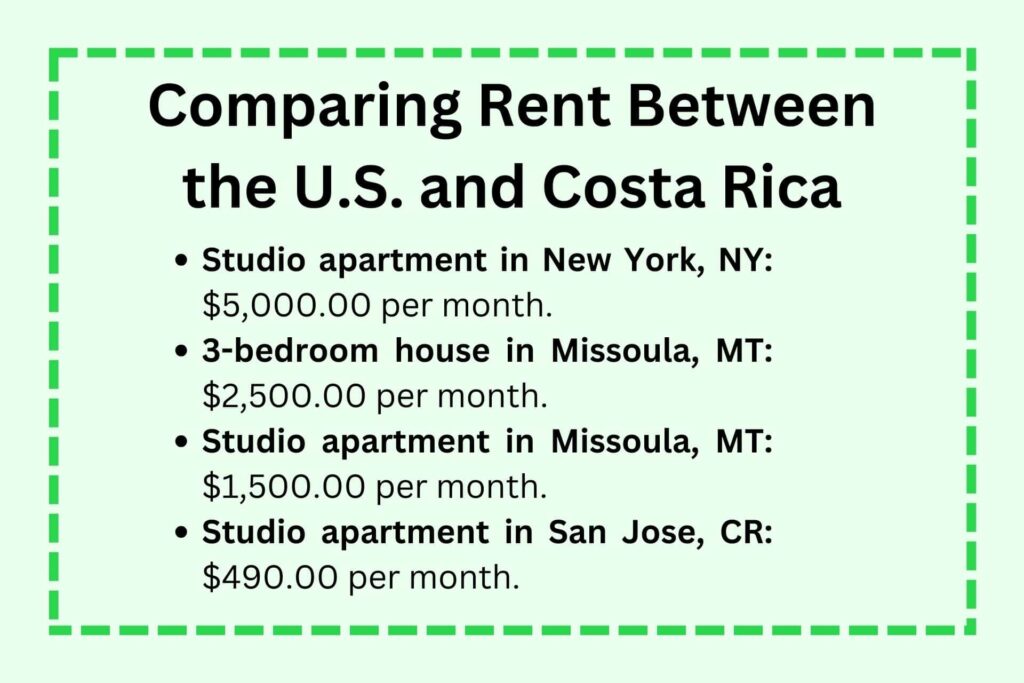
$490.00 was practically a steal.
In other parts of the country, property in Costa Rica can be even cheaper. You can find nice houses or condos to buy for the equivalent of $100,000 or less. They may need some work, and they won’t necessarily be glamorous beachfront bungalows, but no matter where you are, you’re still no more than 3 hours’ drive from a beach in any direction, even if you’re living smack-dab in the middle of the country.
Just don’t go looking on Re-Max or any of the international websites for affordable accommodation. Word of mouth is your best resource for finding a place to live, down here.
Costa Rica is the safest place to live in Central America.
Perhaps it’s because of its comparative wealth, or it might be due to the culture, or it might be due to high education and literacy rates, but Costa Rica is one of the safest Central American countries to visit or live in. Even living in the central valley as a young woman, I often walk to the supermarket alone at night, though even so, I always exercise common sense, remain vigilant, and carry (or swing around) a self-defense tool* wherever I go.
Costa Rica’s crime rate is minimal compared to cities like Chicago, Minneapolis, Detroit, San Francisco, Boston, New York City, Miami, or any of the other major American cities. Just practice good judgment, and never ignore your instincts. If something feels dangerous, it probably is. (Even if it STILL isn’t as dangerous as it would be in a major city back home.)
Thankfully, the dangerous parts of the country are, as in most countries, almost universally located in the major cities- in particular, in certain parts of San Jose.
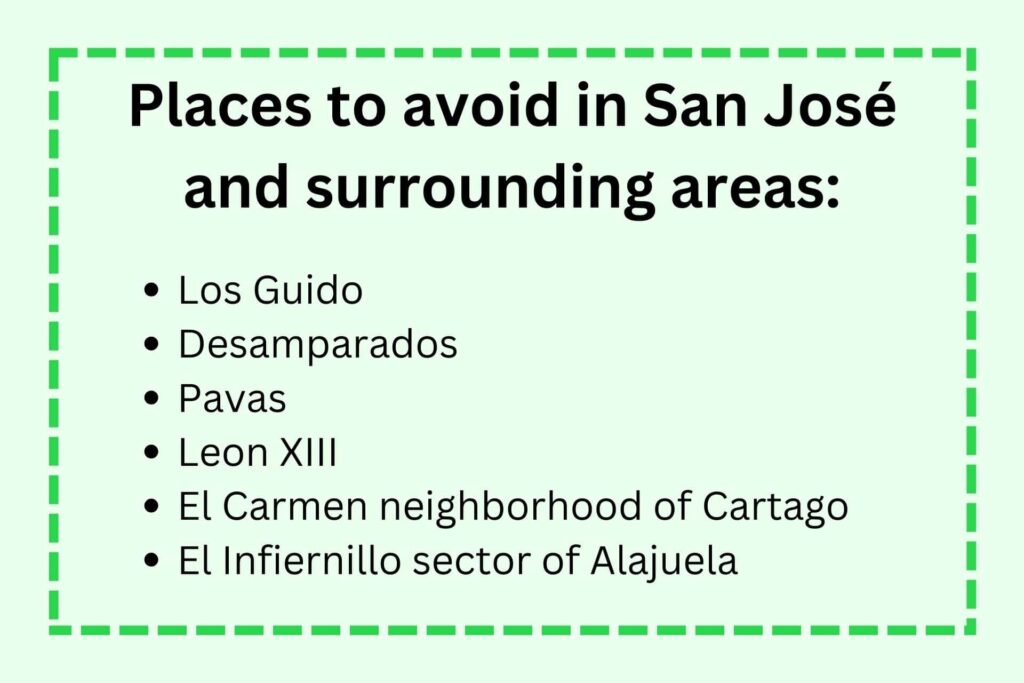
Interesting Note: As one of my Costa Rican friends put it, Costa Ricans have a cultural difference to where they, as a community, strongly condemn any sort of crime, and if even a minor crime (such as theft or a break-in) is reported in an area, that area suddenly gets known as a “bad part of town” and people start avoiding it. This sort of locational shunning might mean that an area’s danger factor might be exaggerated, but if a local tells you not to go to a certain area, you’ll probably want to listen to them.
The Costa Rican natural environment is legendary.
Costa Rica is a beautiful country by any stretch of the word. With ecosystems ranging from beaches to rainforests, from arid desert to cloud forests, from lush, green valleys to tall mountains, and from cool alpine lakes to the country’s four active volcanoes, there is something here for everyone to love.
As an American moving from a huge country, where you have to drive for 5 days straight to get from one coast to the other, it was a real shock to realize that, in Costa Rica, you can easily watch the sun rise in Limón and then take a bus cross-country and watch the sun set on the same day in Guanacaste, and stop at an active volcano for lunch and a hike on the way.
(I haven’t done that, myself, yet- one of my English students told me about it- but it’s certainly on my bucket list!)
Living in the United States, we’re used to having to drive hours and hours to see anything majestic or to get a change of scenery. Costa Rica is a country about the size of the state of Massachusetts (much smaller, even, than my home state of Montana), so this is one of the best places to live if you love biodiversity.
They also have an excellent coffee culture, so that’s an extra… perk. (Ba-dum-tsss!)
If you want to work in Costa Rica, you can get by on your tourist visa.
For most jobs, you can work legally in Costa Rica without a special visa. One woman I spoke with admitted that she has never gotten a work visa in her five years of living here; she just leaves Costa Rica every 180 days, renews her tourist visa to enter Costa Rica, and keeps working. For some companies, however, you will need to obtain documentation to get a work visa, and that can get interesting if you’re trying to do anything on short-notice, like I was.
If you are still working for a business based in the United States, you’ll be happy to know that Costa Rica has one of the best internet infrastructures in the region.
If you want to work for a business in Costa Rica, Costa Rica is generally pretty friendly to people who want to find skilled labor or white-collar jobs. To obtain a work visa in Costa Rica, you have to have a federal background check and an original copy of your birth certificate, issued from the state in which you were born, and both must come with apostilles attached.
You can get these from the FBI and other companies, but keep in mind that Costa Rica does not have a mailing system on par with what we have in the United States. This depends on where you live, of course, but it’s just easier to do it while you’re still at home.
If you do find a job down here, however, I recommend opening up an account and having your paychecks deposited into a Costa Rican bank for your own sanity.
One excellent option is the Banco de America Central, or BAC, which I personally use. Their app is easy to use, and I’ve never had any problems with them. Another good option is the Banco de Costa Rica, which is local as well as reliable.
Costa Rican food and coffee are absolutely delicious.

Photo by Justus Menke on Unsplash, modified on Canva.
I know I just wrote this, but it bears repeating: Costa Rican food and coffee are delicious. The food here is tasty, and there’s a wide variety of it to be found.
The most authentic and inexpensive food is the stuff you’ll find at a local soda, or café, and they usually have signs out front describing what’s on special for the day.
One of my favorite sodas is called Le Rendez Vous, located in the Yoses Sur neighborhood of San Jose. They serve an excellent cappuccino as well as delicious French pastries and breads. I haven’t tried their sandwiches, yet, but I hear that they’re to die for, and the service is excellent.
One of my friends’ favorite coffeehouses is called Cabra Negra, located in the Barrio Escalante neighborhood of San Jose (one of the most high-end areas of town). He says that they serve some of the best coffee that Costa Rica offers, as well as some excellent goodies to enjoy with your caffeine.
Just northwest of San Jose is the town of Heredia, which is home to the Britt Coffee Company. Britt coffee is one of the more expensive brands on the market, and I’ve never found it outside of Costa Rica, but it’s well worth the extra 1,000 colones to buy a bag of this whole-bean goodness.
Edit 1-9-2024: I just discovered that you can pre-order Britt Coffee online, and that they have free shipping to the continental United States for orders that meet certain conditions (such as being worth $30 or more, or buying 3 bags of coffee).
The company offers excellent 90-minute tours for $29 USD. I found it fascinating to learn about how to brew a proper cup of coffee, the origins of coffee and how it’s roasted, and other things that we learned on our tour. (Plus, the coffee was a sensory delight!)
Also, the Coca Cola around here is made with real sugar! Which tastes 1,000,000% better than the high-fructose corn syrup swill they sell in the U.S.
Pros and Cons of moving to Costa Rica without a visa
So, here are some of the pros and cons of moving to Costa Rica from the U.S.
Expats living in Costa Rica say that their reasons to move to Costa Rica were as varied as their own individual circumstances, but many of them cite the affordable cost of living and healthcare, the healthy lifestyle, and the fact that this country is the safest place to move to in Central America. The downside is that, if you don’t have a non-tourist visa of some kind, you have to leave the country every 180 days and then return to renew your visa.
I’d read about Costa Rica many times before I came down here, but reading is really no comparison to doing. If you’re moving or plan to move to Costa Rica, there will be some challenges, but I have no doubt that you’ll love this country the moment you set foot on her soil for the first time.
If you come to Costa Rica as a tourist, you may find yourself wanting to live in Costa Rica long-term. No matter your reasons for looking to move, you might want to find a good moving checklist before you take the plunge.
As they say here,
¡Pura vida!
*Moving checklist coming soon.
